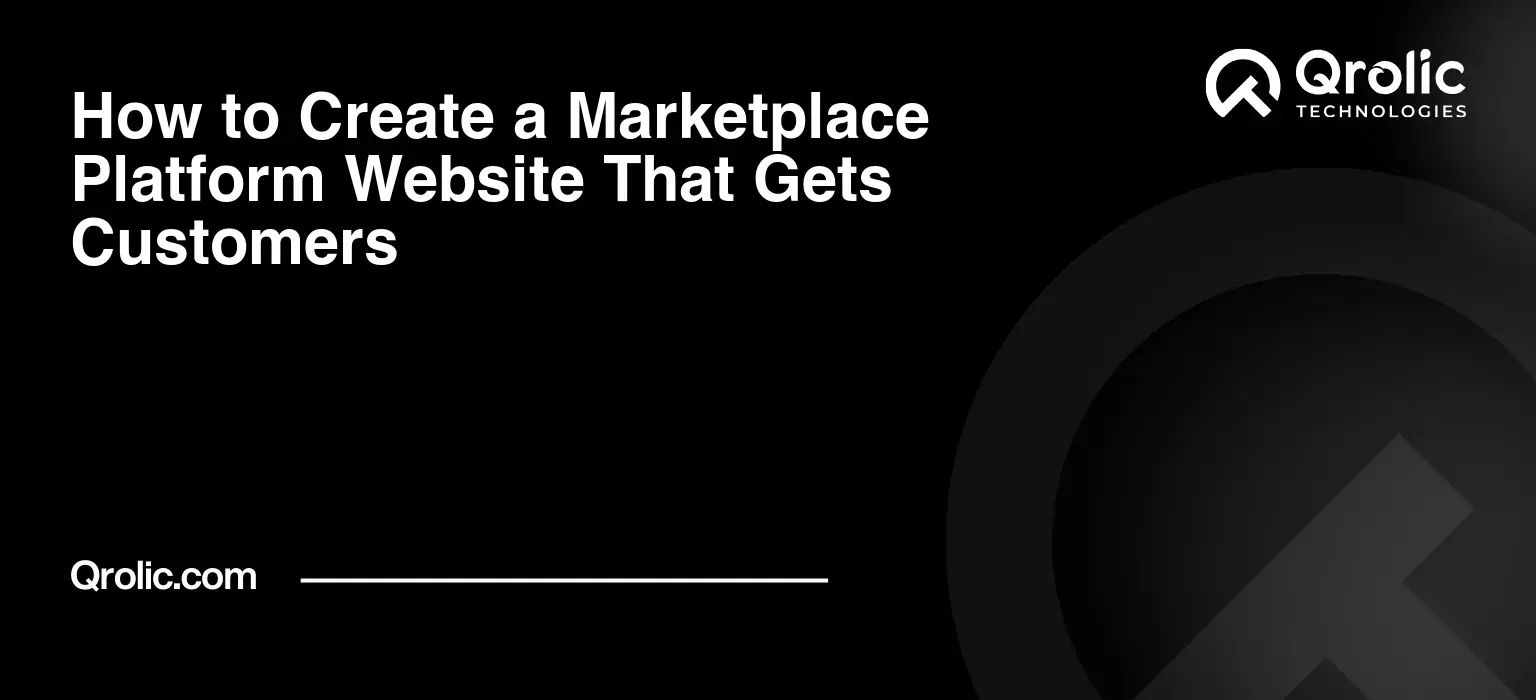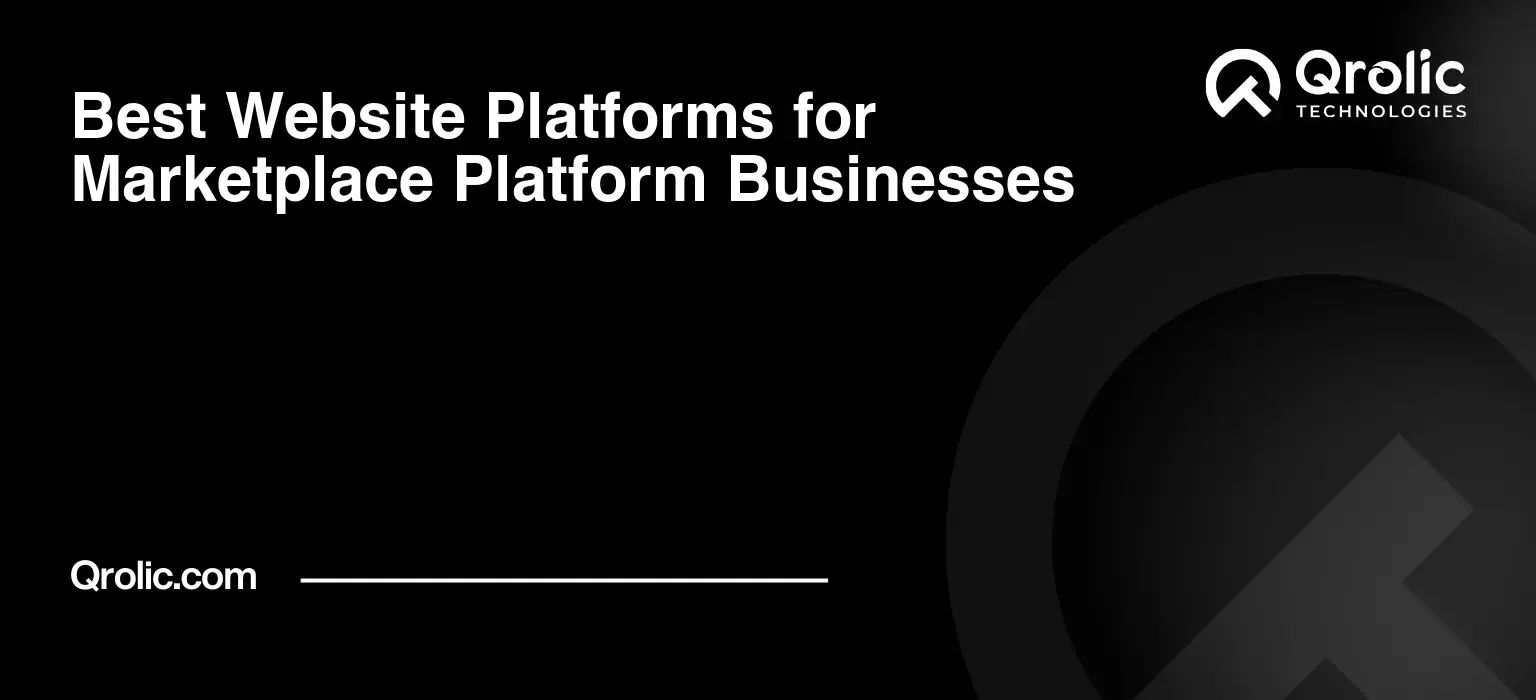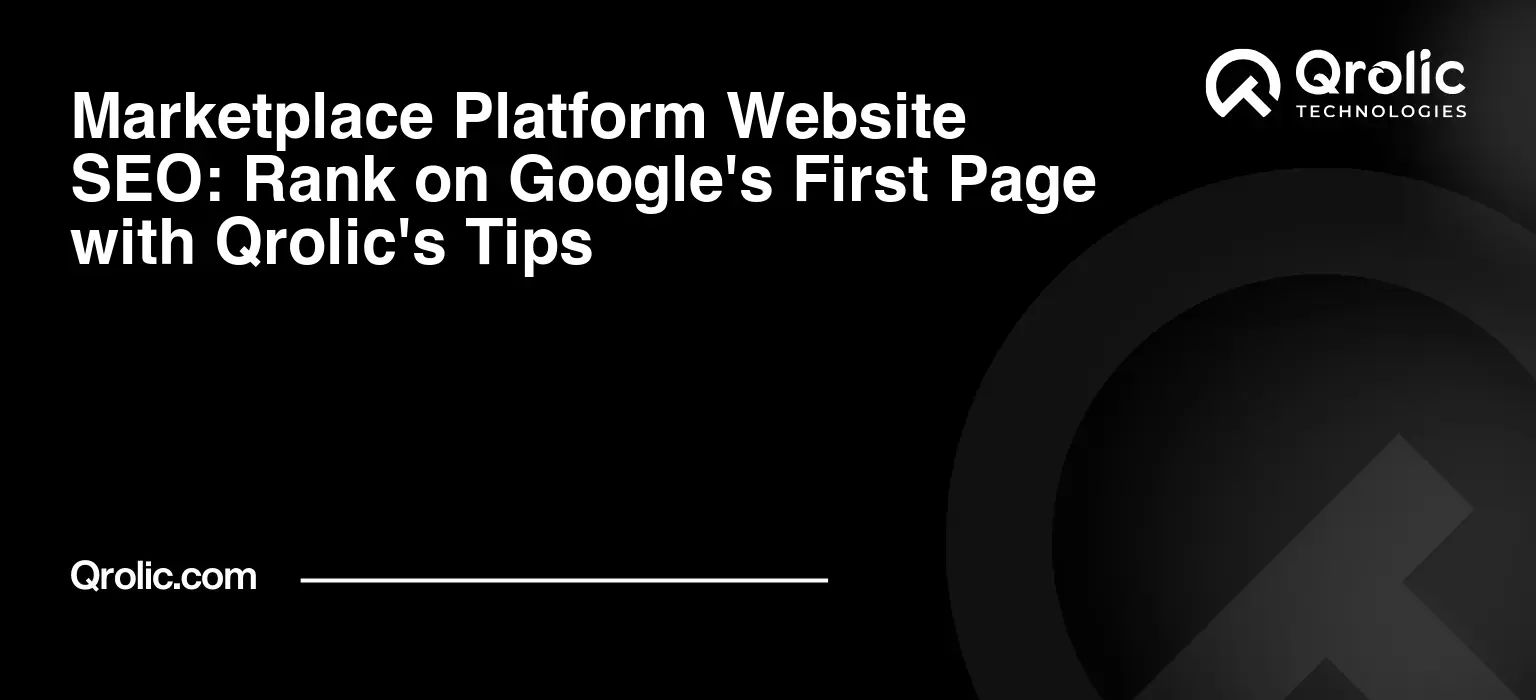Choosing the right website platform is one of the most important decisions a business or individual can make when building an online presence. With so many options available—WordPress, Wix, Shopify, Squarespace, and custom development platforms—it’s easy to get overwhelmed. Each platform has its own strengths, weaknesses, and ideal use cases. This guide will help you navigate the maze of choices, identify the best platform for your needs, and ensure you make an informed decision that will benefit your website, your business, and your users.
Quick Summary:
- Choose your platform based on your goals and skills.
- WordPress excels for big blogs but requires active management.
- Wix, Webflow, Framer suit simpler or design-focused needs.
- Ongoing updates, SEO, and content grow your website.
Table of Contents
- 1. Understanding Website Platforms
- 2. Key Factors to Consider When Choosing a Platform
- 2.1 Business Goals
- 2.2 Technical Expertise
- 2.3 Budget
- 2.4 Scalability
- 2.5 SEO & Marketing Needs
- 2.6 Security
- 3. Popular Website Platforms and Their Features
- 3.1 WordPress
- 3.2 Shopify
- 3.3 Wix
- 3.4 Squarespace
- 3.5 Custom Development
- 4. Comparing Platforms Based on Business Goals
- 5. Performance, Scalability, and SEO Implications
- 5.1 Performance
- 5.2 Scalability
- 5.3 SEO Considerations
- 6. Security and Maintenance Considerations
- 7. Steps to Choose the Right Platform for Your Needs
- Step 1: Define Your Goals
- Step 2: Evaluate Technical Resources
- Step 3: Budget Planning
- Step 4: Analyze Performance Needs
- Step 5: Research SEO and Marketing Requirements
- Step 6: Test and Compare Platforms
- Step 7: Seek Expert Help
- 8. Case Study: Businesses That Succeeded by Choosing the Right Platform
- Case Study 1: High-Traffic Media Site
- Case Study 2: E-commerce Growth
- Case Study 3: Custom Enterprise Solution
- 9. How Qrolic Technologies Can Help You Choose and Implement the Best Platform
- 10. Final Thoughts
1. Understanding Website Platforms
A website platform is the foundation upon which your website is built. Think of it as the engine of a car—the better the engine, the smoother the ride. Platforms provide the tools, templates, and infrastructure needed to create, manage, and scale a website. Choosing the wrong platform can result in technical challenges, poor performance, limited scalability, and higher costs over time.
Types of platforms:
- Content Management Systems (CMS): Platforms like WordPress, Joomla, and Drupal allow flexible content creation, easy updates, and large plugin ecosystems.
- Website Builders: Wix, Squarespace, and Weebly are drag-and-drop platforms with simple interfaces for beginners.
- E-commerce Platforms: Shopify, BigCommerce, and WooCommerce are optimized for online selling.
- Custom Development: Tailor-made websites built from scratch offer unmatched flexibility but require experienced developers.
2. Key Factors to Consider When Choosing a Platform
Before diving into platform options, evaluate your needs based on the following factors:
2.1 Business Goals
- Are you starting an online store, a personal blog, a corporate website, or a high-traffic media site?
- Platforms like Shopify are ideal for e-commerce, while WordPress excels in content-heavy websites.
2.2 Technical Expertise
- Do you have coding skills or a development team?
- Drag-and-drop builders are beginner-friendly, while custom development or WordPress may require technical knowledge.
2.3 Budget
- Website costs vary greatly depending on platform, hosting, customization, and maintenance.
- Free platforms may come with limitations, while premium solutions offer advanced features.
2.4 Scalability
- Consider whether your website can handle increasing traffic and new features as your business grows.
- wordpress vip and custom platforms are excellent for high-traffic and enterprise-level sites.
2.5 SEO & Marketing Needs
- Some platforms offer better SEO flexibility than others.
- WordPress, Shopify, and Squarespace provide strong SEO tools to optimize your visibility in search engines.
2.6 Security
- Security is critical, especially for e-commerce and data-sensitive websites.
- Look for platforms with strong security updates, SSL support, and reliable hosting.
Ready to Build Your Next Project?
Let’s turn your ideas into a powerful digital solution. Contact us today to get started with expert web development and design services.
3. Popular Website Platforms and Their Features
Here’s a detailed comparison of the most widely used platforms:
3.1 WordPress
Overview: WordPress powers over 43% of all websites worldwide, making it the most popular CMS. It’s open-source, flexible, and scalable.
Best for: Blogs, corporate websites, e-commerce stores (with WooCommerce), and complex custom sites.
Advantages:
- Highly customizable with thousands of themes and plugins.
- Strong SEO capabilities.
- Scalable for large audiences and high-traffic websites.
- Large support community.
Challenges:
- Requires hosting setup and technical knowledge for advanced customization.
- Frequent updates and plugin conflicts can be a challenge without proper management.
Pro Tip: Partnering with a professional agency like Qrolic Technologies can streamline updates, Performance Optimization, and ensure long-term stability.
3.2 Shopify
Overview: Shopify is a dedicated e-commerce platform designed for online selling.
Best for: E-commerce businesses that want a hassle-free, fast setup for online stores.
Advantages:
- Easy-to-use drag-and-drop interface.
- Built-in payment gateways and inventory management.
- Extensive app ecosystem.
- Secure hosting included.
Challenges:
- Limited customization compared to WordPress or custom-built platforms.
- Monthly subscription fees can increase with scaling and added apps.
3.3 Wix
Overview: Wix is a beginner-friendly website builder with drag-and-drop functionality.
Best for: Small businesses, portfolios, personal blogs, and landing pages.
Advantages:
- Intuitive visual editor with no coding needed.
- Affordable pricing for small websites.
- Pre-designed templates for quick launches.
Challenges:
- Limited scalability for large websites.
- SEO flexibility is not as advanced as WordPress.
3.4 Squarespace
Overview: Squarespace offers visually appealing templates and user-friendly design tools.
Best for: Creative professionals, photographers, small business websites, and portfolio sites.
Advantages:
- Elegant, responsive design templates.
- Easy-to-use content management system.
- Built-in analytics and SEO tools.
Challenges:
- Limited integrations compared to WordPress.
- Pricing can be higher than Wix for advanced features.
3.5 Custom Development
Overview: Custom websites are built from scratch by experienced developers.
Best for: Large businesses, high-traffic platforms, and unique website requirements.
Advantages:
- Complete control over design, functionality, and user experience.
- Scalability for millions of users.
- Tailored security and Performance Optimizations.
Challenges:
- Higher upfront costs and longer development timelines.
- Requires ongoing maintenance by skilled developers.
Pro Tip: Agencies like Qrolic Technologies specialize in custom WordPress development, optimizing databases, and server performance for enterprise-level projects.
4. Comparing Platforms Based on Business Goals
Choosing a platform depends heavily on your goals:
| Goal | Recommended Platform | Notes |
|---|---|---|
| Blogging / Content-heavy | WordPress | Powerful SEO, plugins, and flexibility. |
| E-commerce / Online Store | Shopify / WooCommerce | Built for sales, secure, scalable. |
| Portfolio / Creative Showcase | Squarespace / Wix | Beautiful templates, easy setup. |
| High-traffic / Enterprise | Custom / wordpress vip | Optimized performance, scalable infrastructure. |
| Simple, small business site | Wix / Squarespace | Fast launch, minimal technical effort. |
Ready to Build Your Next Project?
Let’s turn your ideas into a powerful digital solution. Contact us today to get started with expert web development and design services.
5. Performance, Scalability, and SEO Implications
5.1 Performance
A fast-loading website improves user experience and search rankings. Platforms like WordPress (with optimization), Shopify, and custom solutions excel at handling high traffic with proper caching and server optimization.
5.2 Scalability
If your site is expected to grow significantly, avoid platforms with strict limitations. WordPress VIP, Shopify Plus, and custom platforms can scale efficiently.
5.3 SEO Considerations
SEO is crucial for attracting organic traffic:
- WordPress: Full control over meta tags, URLs, sitemaps, and schema.
- Shopify: Optimized for product pages, but fewer SEO customization options.
- Wix / Squarespace: Adequate for small businesses but limited flexibility for advanced SEO.
Tip: Partner with an SEO-savvy development team, like Qrolic Technologies, to ensure proper optimization from day one.
6. Security and Maintenance Considerations
Website security cannot be overlooked. Here’s what to consider:
- Updates: Platforms like WordPress require regular updates to themes, plugins, and core software.
- Backups: Ensure automatic backups to prevent data loss.
- SSL Certificates: Mandatory for secure transactions and SEO benefits.
- Monitoring: Real-time monitoring protects against malware, hacking, and downtime.
Custom solutions and agencies like Qrolic Technologies handle these security tasks efficiently, giving you peace of mind.
7. Steps to Choose the Right Platform for Your Needs
Follow these actionable steps:
Step 1: Define Your Goals
- Identify whether your site is for blogging, e-commerce, portfolio, corporate, or enterprise needs.
Step 2: Evaluate Technical Resources
- Decide whether you have in-house developers or need external support.
Step 3: Budget Planning
- Estimate costs for setup, hosting, maintenance, and marketing.
Step 4: Analyze Performance Needs
- Determine expected traffic, speed requirements, and scalability.
Step 5: Research SEO and Marketing Requirements
- Ensure the platform can support your SEO and digital marketing strategies.
Step 6: Test and Compare Platforms
- Use demos, trials, or prototypes to evaluate usability and flexibility.
Step 7: Seek Expert Help
- Consult experienced agencies like Qrolic Technologies for tailored recommendations and development support.
8. Case Study: Businesses That Succeeded by Choosing the Right Platform
Case Study 1: High-Traffic Media Site
- Challenge: slow-loading site affecting user retention.
- Solution: Migrated to WordPress VIP with custom caching and database optimization.
- Result: Page speed improved from 30s to 3s, increasing engagement by 80%.
Case Study 2: E-commerce Growth
- Challenge: Small Shopify store struggling with peak traffic.
- Solution: Integrated performance optimization and server scaling.
- Result: 200% increase in sales during holiday campaigns.
Case Study 3: Custom Enterprise Solution
- Challenge: Complex business logic could not be handled by standard CMS.
- Solution: Custom WordPress development with modular architecture.
- Result: Reduced maintenance cost and faster deployment of new features.
9. How Qrolic Technologies Can Help You Choose and Implement the Best Platform
Qrolic Technologies is an exclusive WordPress agency that simplifies complex website challenges. Their services include:
- Platform Consultation: Expert guidance to select the ideal platform based on your goals, traffic, and budget.
- Custom Development: Tailored WordPress solutions, including high-traffic optimization, e-commerce enhancements, and plugin customization.
- Performance Optimization: Speed, scalability, and security improvements to maximize ROI.
- Ongoing Support: Continuous maintenance, updates, and SEO optimization.
- Proven Track Record: Trusted by global companies like 91mobiles, Financer.com, and GrowOwn.
Partnering with Qrolic Technologies ensures your website is built on a solid platform, optimized for growth, and maintained with care.
10. Final Thoughts
Choosing the right website platform is critical for online success. Consider your business goals, technical expertise, budget, scalability, performance, SEO, and security. While DIY solutions like Wix or Squarespace work for small sites, high-traffic and complex websites benefit significantly from WordPress or custom development.
Partnering with Qrolic Technologies ensures that your website is optimized, scalable, and secure while delivering an outstanding user experience. Their team of WordPress Experts, performance optimizers, and custom developers can turn your website vision into a powerful, growth-oriented online presence.
Invest wisely, plan strategically, and watch your website transform from a digital presence into a business growth engine.









